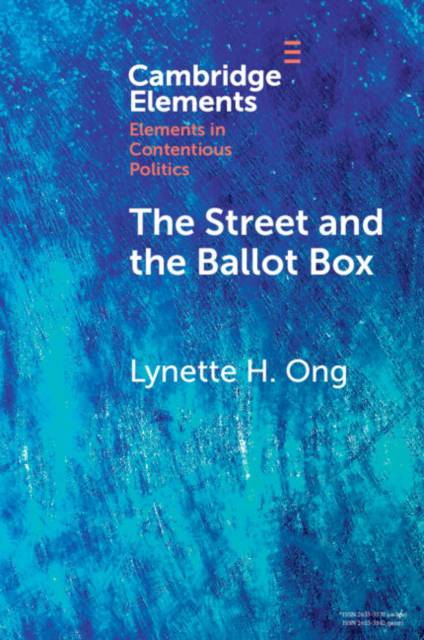
- Afhalen na 1 uur in een winkel met voorraad
- Gratis thuislevering in België vanaf € 30
- Ruim aanbod met 7 miljoen producten
- Afhalen na 1 uur in een winkel met voorraad
- Gratis thuislevering in België vanaf € 30
- Ruim aanbod met 7 miljoen producten
Zoeken
The Street and the Ballot Box
Interactions Between Social Movements and Electoral Politics in Authoritarian Contexts
Lynette H Ong
€ 31,95
+ 63 punten
Omschrijving
How do discontented masses and opposition elites work together to engineer a change in electoral authoritarian regimes? Social movements and elections are often seen as operating in different terrains - outside and inside institutions, respectively. In this Element, I develop a theory to describe how a broad-based social movement that champions a grievance shared by a wide segment of the population can build alliances across society and opposition elites that, despite the rules of the game rigged against them, vote the incumbents out of power. The broad-based nature of the movement also contributes to the cohesion of the opposition alliance, and elite defection, which are often crucial for regime change. This Element examines the 2018 Malaysian election and a range of cases from other authoritarian regimes across Asia, Eastern Europe, and Africa to illustrate these arguments.
Specificaties
Betrokkenen
- Auteur(s):
- Uitgeverij:
Inhoud
- Aantal bladzijden:
- 75
- Taal:
- Engels
- Reeks:
Eigenschappen
- Productcode (EAN):
- 9781009158305
- Verschijningsdatum:
- 24/02/2022
- Uitvoering:
- Paperback
- Formaat:
- Trade paperback (VS)
- Afmetingen:
- 152 mm x 229 mm
- Gewicht:
- 122 g

Alleen bij Standaard Boekhandel
+ 63 punten op je klantenkaart van Standaard Boekhandel
Beoordelingen
We publiceren alleen reviews die voldoen aan de voorwaarden voor reviews. Bekijk onze voorwaarden voor reviews.











